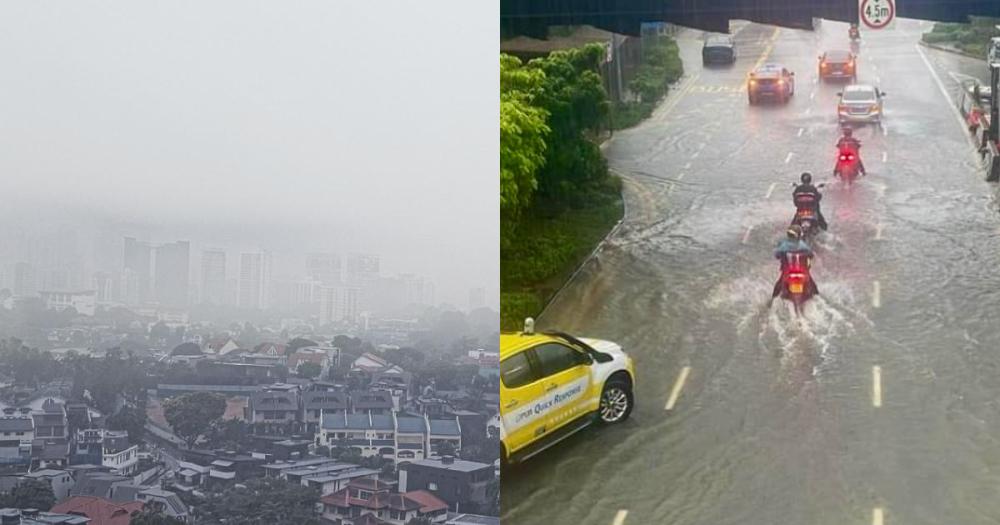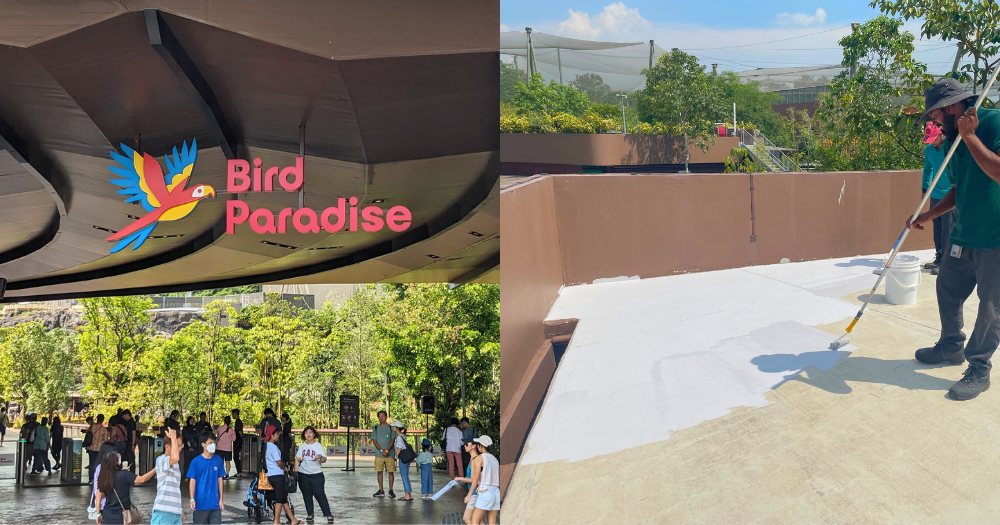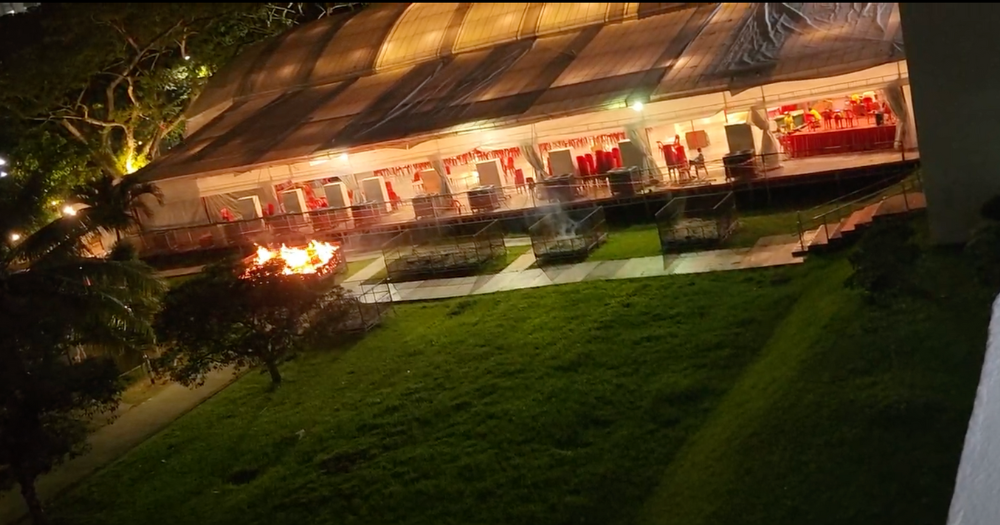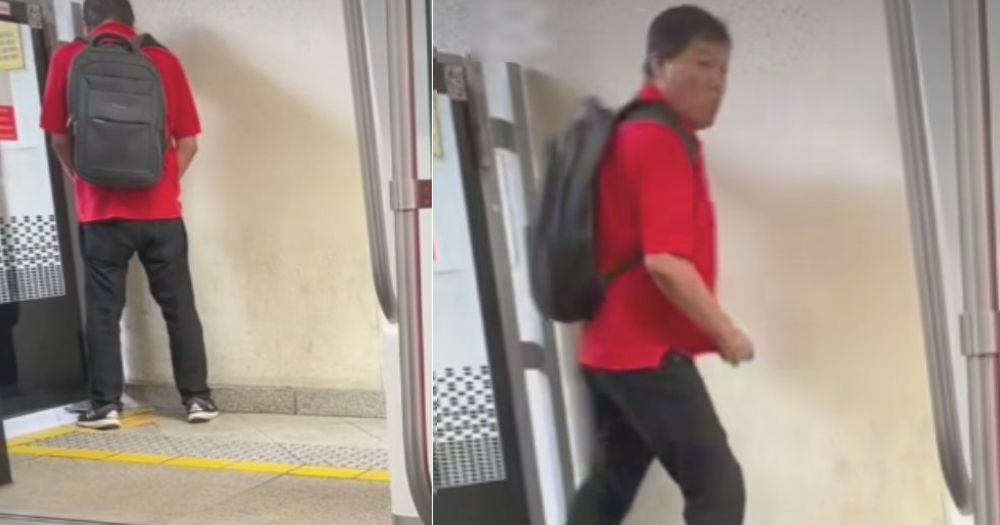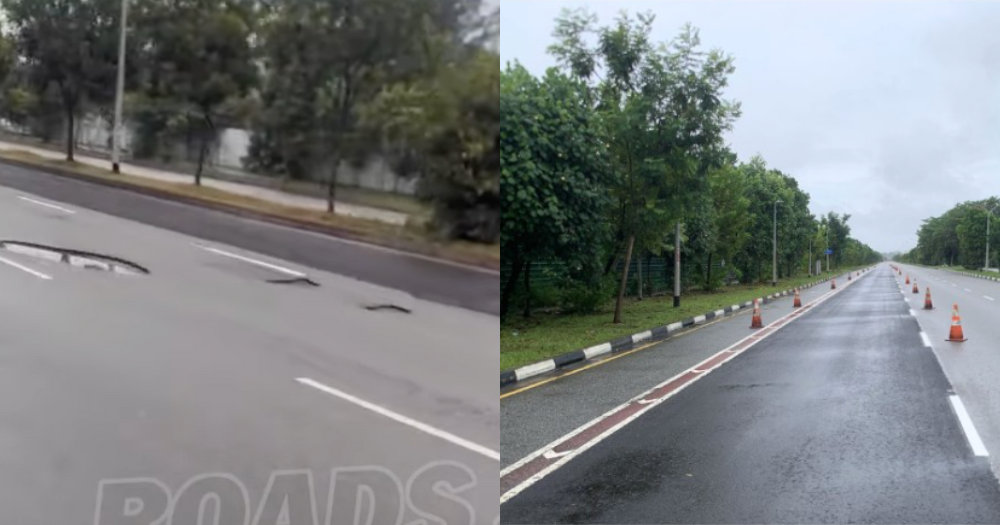Person seen feeding flock of pigeons at Tampines HDB corridor, residents complain of 'unbearable' stench
NParks said it will continue to monitor the situation and enforcement action will be taken against errant bird feeders.
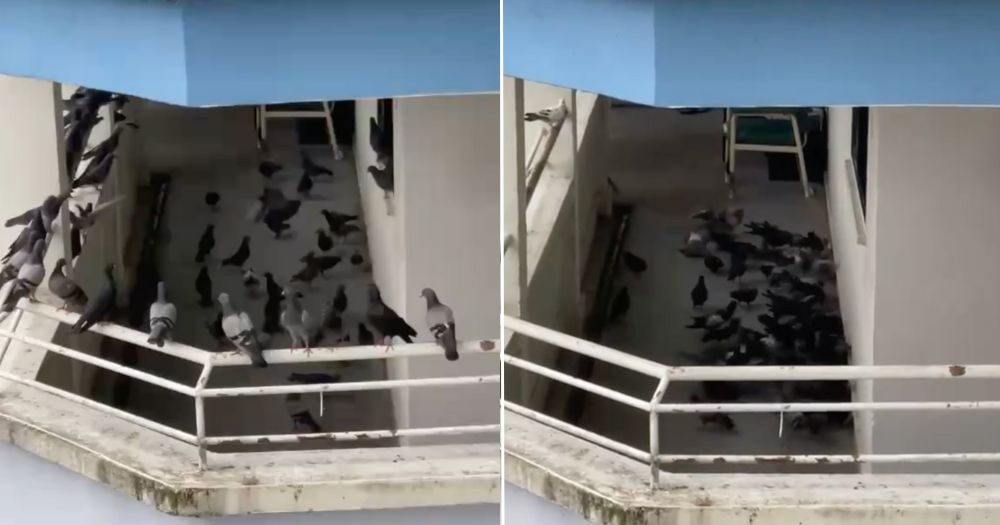
Imagine opening your windows for some fresh air only to be hit by the foul stench of bird droppings.
This is the reality for some residents of Block 210 Tampines Street 23, who attribute the issue to an alleged pigeon-feeding neighbour.
The persistent feeding has drawn flocks of pigeons to the area, creating a nuisance for others, according to one resident’s daughter who shared her concerns with Mothership.
Smell of pigeon droppings
Photos and videos provided by the woman show large numbers of pigeons congregating along the corridor and outside a unit in the block.
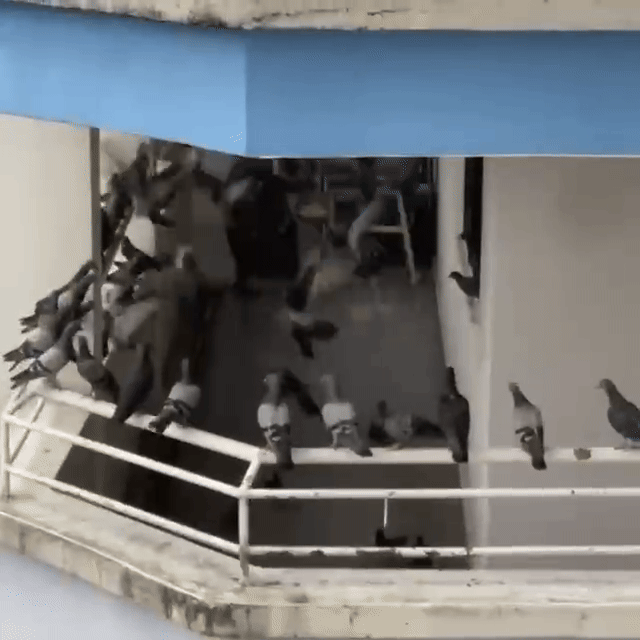 Gif via Mothership reader
Gif via Mothership reader
In a video recorded on Jan. 12 at around 5:30 pm, an individual appeared to toss food from a tray before leaving, prompting a flock of pigeons to descend and feed on the scraps.
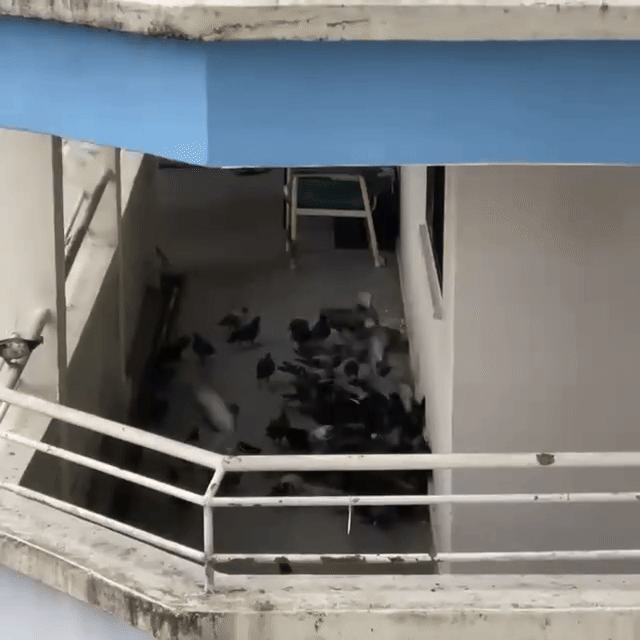 Gif via Mothership reader
Gif via Mothership reader
The woman’s mother observed that the alleged feeder seems to provide food to the birds at least once a day, usually around dinnertime.
"There are so many pigeons outside my parents’ unit that when you open the window, all you smell is pigeon droppings," the woman shared.
Another photo she shared showed remnants of bird droppings below her parents' windows.
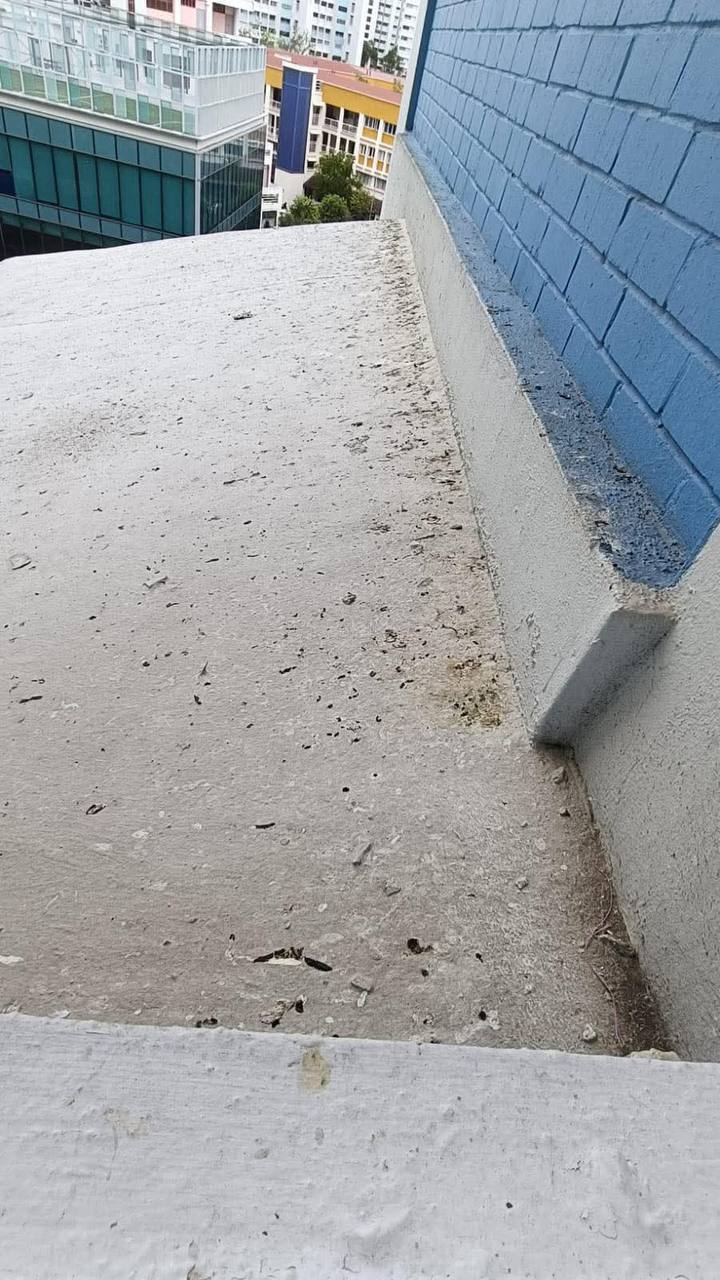 Photo from Mothership reader
Photo from Mothership reader
"The smell is unbearable," she lamented, adding that her parents also worry about the birds flying into their home if the windows are left opened.
When it's not "feeding time", there will still be birds gathered near the unit, she said.
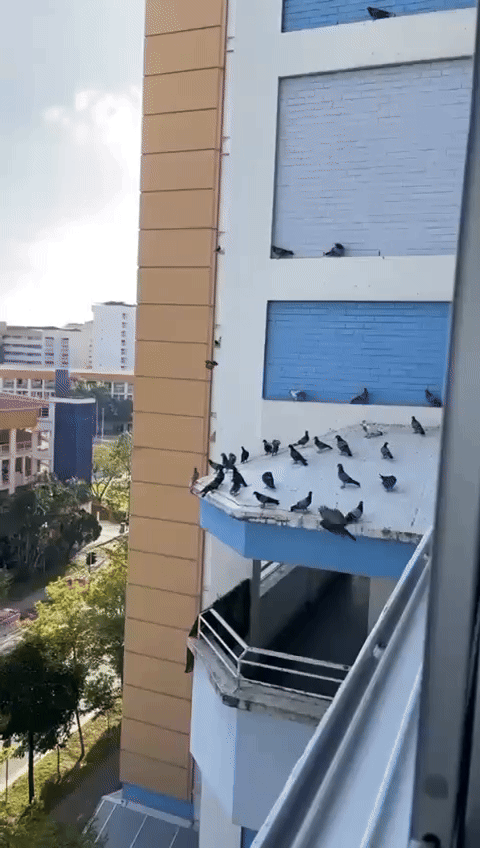 Gif via Mothership reader
Gif via Mothership reader
Ongoing problem
The woman claimed that the feeding has been happening since 2023 but said there were not that many pigeons then.
As the number of pigeons increased, she decided to make a report to the authorities.
She filed a report with National Parks Board (NParks) on Oct. 27, 2024, and was informed that surveillance would be set up.
However, when she followed up three weeks later, she said she was advised to report the matter to the National Environment Agency (NEA), as it was classified as "high-rise littering."
NEA, in turn, redirected her to lodge her concerns via the OneService app.
So far, she claimed she has submitted at least five reports through the app. On Nov. 20, she received an email requesting additional details but missed the message and only managed to respond on Dec. 10.
She claimed that thus far there has been no concrete resolution to the issue.
Enforcement team to be dispatched
In response to Mothership's queries, How Choon Beng, the group director of wildlife management at NParks stated that the agency is aware of feedback on the feeding of pigeons at Block 210 Tampines Street 23.
They have been working with Tampines Town Council to manage pest bird populations and advise residents against the feeding of birds, while sharing about the implications of these actions on public hygiene and health, he said.
"NParks will continue to monitor the situation and enforcement action will be taken against errant bird feeders," he added.
On Jan. 15, the resident's daughter received a message from an officer acting on behalf of the Municipal Services Office.
In a WhatsApp message from the officer that she showed Mothership, the resident's daughter was asked for more information on the bird feeding issue and was later told that an enforcement team will be dispatched to the block.
Bird feeding is illegal
How explained that rock pigeons are a non-native species in Singapore, and their flocking and roosting behaviour can lead to soiling and hygiene issues.
To safeguard public health and minimise dis-amenities, town councils and agencies take a science- and community-based approach to managing the pigeon population, he shared.
Managing the pigeon population requires the efforts of multiple agencies and town councils, How emphasised.
This includes reducing human-generated food sources, such as by tackling high rise littering and managing waste at food establishments and bin centres.
Other measures include habitat modification and population control.
Additionally, NParks also conducts studies to understand the ecology of the birds, such as their roosting patterns and movements, How said.
The public is advised to avoid feeding pigeons and to properly dispose of food scraps to help curb the growth of the pigeon population.
Under the Wildlife Act, offenders can be fined up to S$5,000 for their first offence of feeding any wild animal, including pigeons, and up to S$10,000 for subsequent offences.
"NParks monitors feedback on illegal bird feeding and undertakes active enforcement, which includes physical surveillance and the deployment of CCTV cameras at identified feeding hotspots," How said.
Educating residents
How said that NParks also reaches out to members of the community such as students through outreach talks in schools, and the elderly via the “Our Avian Neighbours” initiative.
The initiative, which was launched in July 2023, aims to raise awareness among the elderly on the negative impacts of bird feeding.
Under this initiative, NParks collaborates with active ageing centres to organise engagement sessions comprising a talk on common urban birds and the negative impacts of bird feeding.
These messages are emphasised through educational games, and the distribution of collaterals, How added.
Action plan
A pigeon management action plan was piloted in June 2024 in areas flagged as hotspots for large pigeon clusters.
These include three contiguous town council areas — Ang Mo Kio, Bishan-Toa Payoh and Tanjong Pagar.
The pilot's "targeted efforts" to manage pigeon populations include measures for food source reduction and direct population control.
Bird feeding was also highlighted as a food source that the action plan aims to tackle.
NParks said then that they would monitor feedback on illegal bird feeding and undertake enforcement against the activity.
This include physical surveillance as well as the deployment of CCTV cameras at feeding hotspots.
Top photos from Mothership reader
MORE STORIES









